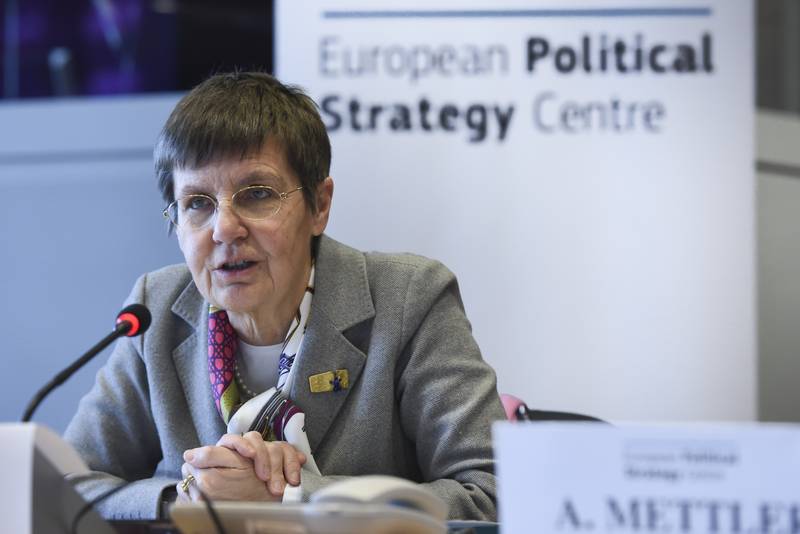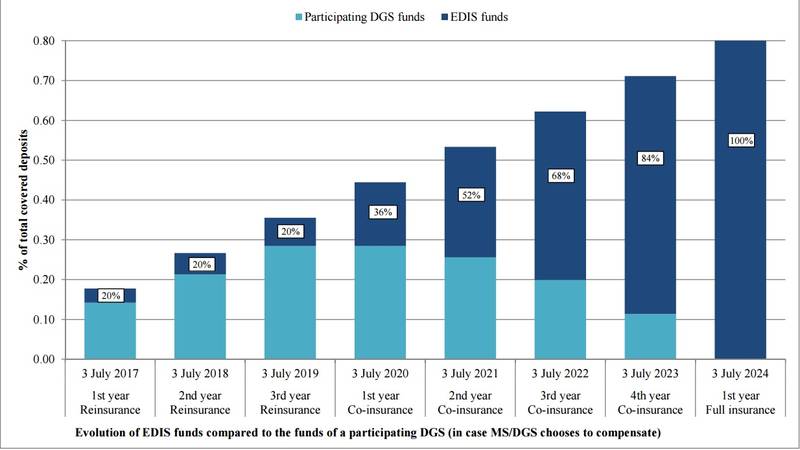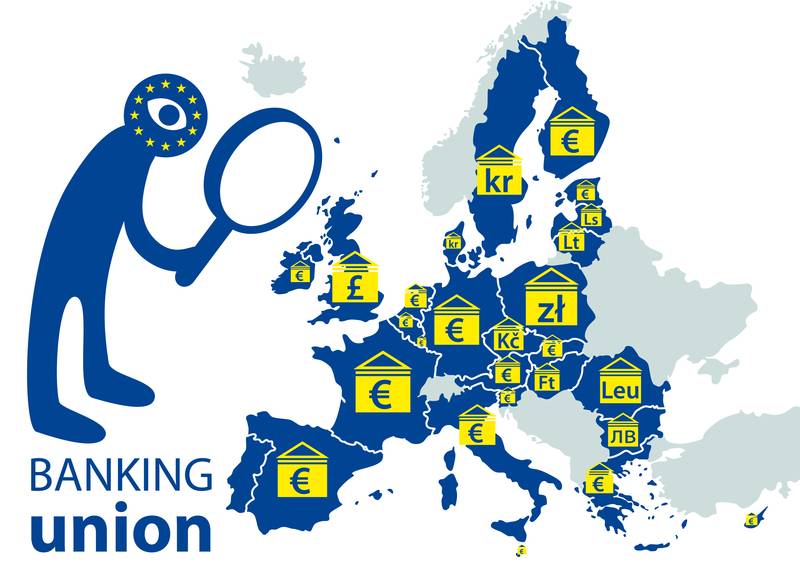Commission Proposes a Roadmap for Full Economic and Monetary Union
Adelina Marini, June 1, 2012
 "The financial and economic crisis has underlined the interdependence between all EU economies, and between the EU and other world economies. It has also revealed important gaps, shortcomings and imbalances in global, EU and national policy-making". This is said in the beginning of the European Commission Communication to all important EU institutions, entitled "Action for Stability, Growth and Jobs", published together with the Country Specific Recommendations under the European Semester on May 30th. The document is quite interesting, although at first sight it misleads with the banality of already discussed issues tens of times. But just at first sight.
"The financial and economic crisis has underlined the interdependence between all EU economies, and between the EU and other world economies. It has also revealed important gaps, shortcomings and imbalances in global, EU and national policy-making". This is said in the beginning of the European Commission Communication to all important EU institutions, entitled "Action for Stability, Growth and Jobs", published together with the Country Specific Recommendations under the European Semester on May 30th. The document is quite interesting, although at first sight it misleads with the banality of already discussed issues tens of times. But just at first sight.
Toward a banking union
The Communication is divided into two parts: the European Union role in "a new growth initiative" and the role of the member states. Apart from listing everything, done so far in an attempt to set in motion the clumsy and imbalanced machine consisting of 27 sovereign elements, the Commission recommends with a very cautious wording moving toward deeper integration of the eurozone. "The Commission will advocate an ambitious and structured response", the text reads. At this stage there is nothing more specific than starting a "political process to give democratic legitimacy and accountability to further integration moves". The key in the not very specific ideas of the Commission is in the word 'process'. It is proposed moving toward creation of a banking union, including through integrated financial supervision and a single deposit guarantee scheme.
Of course, the Commission does not miss the chance to kindly note "we told you so", saying that it had already made public its ideas in its Green Book of November 2011 about how the euro area could move towards eurobonds. "The pace and sequencing of these developments will need to be worked out, including a roadmap and a timetable, but an early confirmation of the steps to be taken will underscore the irreversibility and solidity of the euro". In this sentence all political and economic events of the past month are contained - from new French President Francois Hollande's insistence for an immediate debate on introducing eurobonds (joint debt issuance) at his very first participation in a EU leaders summit on May 23rd to the German position that integration must deepen further first and then pass on to eurobonds.
At their informal dinner on May 23rd in Brussels the leaders discussed in detail the measures to boost economic growth in the EU and charged the Commission to come up with concrete proposals by their June summit. It has been known for some time that the Commission was preparing political proposals on May 30 but according to some media, quoting internal information, the re-writing of this document continued till the very last moment. It is obvious from the text that the Commission relies on caution and in the same time recalls that there already are appropriate ideas and it is not necessary to again invent the wheel. In fact, currently the Commission is in a very difficult position between the hammer and the anvil in the EU, where many multilayer political and economic processes are taking place, requiring the EU's executive to take the magic wand out.
A new EU strategy? We already have one
However, there is no magic wand and this is why the EU bets on certain - upgrading the Europe 2020 strategy, which was launched in March 2010. Under the words "new growth initiative" the Commission is trying to reduce the talk about a reset of economic growth and the growing needs of national politicians to provide their voters with bright future to the framework of what is possible to be done, proposing practically an upgrade of the Europe 2020 strategy. Right after his election as president, at his first visit abroad, in Germany, French President Francois Hollande announced that he was still sticking to his pre-election promise in the fiscal compact, agreed in the beginning of the year and which is in a process of ratification, more attention to be paid on economic  growth. In the same time he pointed out that while legal possibilities for this were being sought, he would like to see all options on the table by June. Will the latest "trick" of the Commission to "upgrade" the Europe 2020 strategy would do the job we are yet to witness in end-June.
growth. In the same time he pointed out that while legal possibilities for this were being sought, he would like to see all options on the table by June. Will the latest "trick" of the Commission to "upgrade" the Europe 2020 strategy would do the job we are yet to witness in end-June.
The Communication recalls that the purpose of the strategy was to ensure smart, sustainable and inclusive growth in Europe. In order to avoid writing a new strategy, aimed at responding to the panic of European politicians threatened by a series of falling governments, early elections, protests, strikes and vision impotence, the Commission recalls that when the strategy was planned the following analyses were taken into account:
- a commitment toward more targeted investment in research and development of 3% of GDP would create 3.7 million jobs and would increase the European gross domestic product by 800 billion euros by 2020.
- the implementation of the set goals for climate change and energy efficiency by 2020 would generate up to five million jobs and would increase Europe's energy security.
Apart from reminding that the EU already has its own strategy for growth and jobs, the Commission summarises everything that has been done so far - the overhaul of the economic governance, the strengthening of bank supervision through the creation of new European bodies, tightening of fiscal discipline (through the creation of the fiscal compact). What still remains unfinished is work on completing the internal market - an issue which was paid significant attention during the leaders' dinner on May 23rd because in the past decade no significant progress was achieved, especially after the big enlargement in 2004 and 2007. According to the Commission, in general the internal market of goods functions well but in the area of services this is not the case. In June the Commission will propose measures to improve the implementation of the Services Directive.
Again in the style "we told you so", the Commission recalls that many member states have chosen to keep the barriers and restraints. According to analyses of the Commission, if all restrictions were to be removed this would add up around 1.8% GDP. The partial implementation of the directive, which became famous with the threat of the "Polish plumber" or in other words with the threat of cheaper services provided by the new member states, has already had gains of 0.8%.
After recalling that it had already poured out its intellectual potential in ideas and proposals for brighter future, the Commission smoothly passes the ball into the playground of the member states. "It is the cumulation of national situations that makes up the overall direction of the EU. There will inevitably be positive and negative spillovers from national actions (or inaction) on the rest of the EU, hence the need for an EU wide economic governance system implemented through the European Semester".
 What the countries are called upon is to adhere to the recommendations of the European Commission under the European Semester, as well as to the guidelines in the Annual Growth Survey. The nations have to focus on growth-friendly fiscal consolidation. The governments should also stick to their commitments for reduction of government deficits and indebtedness, by in the same time maintaining their public investments in research and innovation, education, energy and reform their social and pension systems. Some countries are called upon to reform their taxation policies with the aim to transfer the burden from labour to environment and consumption, for removing the numerous exemptions, as well as to fight tax evasion and shadow economy. Certain countries are recommended to pay attention to the budget policies at subnational level.
What the countries are called upon is to adhere to the recommendations of the European Commission under the European Semester, as well as to the guidelines in the Annual Growth Survey. The nations have to focus on growth-friendly fiscal consolidation. The governments should also stick to their commitments for reduction of government deficits and indebtedness, by in the same time maintaining their public investments in research and innovation, education, energy and reform their social and pension systems. Some countries are called upon to reform their taxation policies with the aim to transfer the burden from labour to environment and consumption, for removing the numerous exemptions, as well as to fight tax evasion and shadow economy. Certain countries are recommended to pay attention to the budget policies at subnational level.
The main conclusion that stems from reading all the documents the Commission published on May 30 is that the overhauled economic governance already delivers. And another important conclusion, which Jose Manuel Barroso made, the European Commission chief, is that the member states take the recommendations seriously. This assessment should be considered as very high because last year he complained that the member states were not implementing the EU decisions at all. Another important message of the Commission is that no matter the achieved progress there should be no turning back. The right path is only towards deeper integration. How brave would this integration be we will see as early as June when the EU leaders will gather again to discuss their future joint efforts. Everything would depend on how joint they will be.
 Klaus Regling | © Council of the EU
Klaus Regling | © Council of the EU Mario Centeno | © Council of the EU
Mario Centeno | © Council of the EU Mario Centeno | © Council of the EU
Mario Centeno | © Council of the EU Elke Koenig | © European Commission
Elke Koenig | © European Commission | © European Commission
| © European Commission | © European Parliament
| © European Parliament